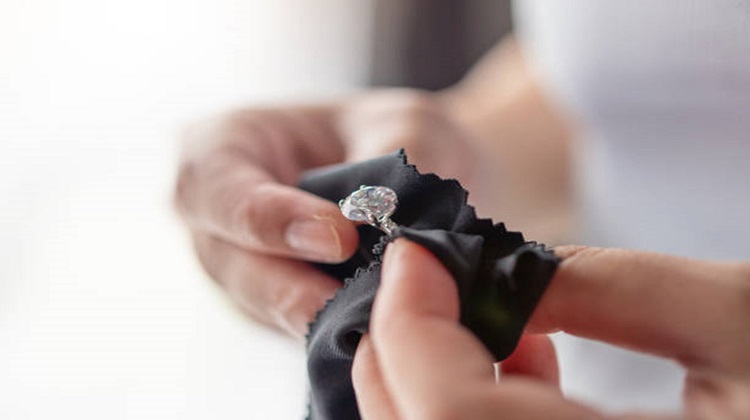
In the last few years, lab-grown diamonds have been increasing in popularity. They are often seen as a more ethical and sustainable option than mined diamonds, as they do not require the same level of exploitation of both people and the environment. But what about when it comes to quality? Do lab-grown diamonds pass a diamond tester? Let’s take a look.
What are lab grown diamonds?
Lab-grown diamonds are real diamonds, but they are grown in a laboratory rather than mined from the earth. They have the same chemical composition and physical properties as diamonds found in nature.
Although they are created in a controlled environment, lab-grown diamonds still undergo the same processes that natural diamonds do. They start as a carbon seed that is placed in a chamber with other chemicals. Then, they are heated to extreme temperatures and pressures until they form into a diamond crystal.
Most people cannot tell the difference between a lab-grown diamond and a mined diamond with the naked eye. However, there are some subtle differences that can be detected with specialized equipment.
The HPHT method involves recreating the conditions that exist deep within the Earth, where natural diamonds are formed. A small diamond seed is placed in a chamber with graphite and a metal catalyst, then subjected to temperatures of around 2,500 degrees Celsius and pressures of around 60,000 atmospheres. This causes the carbon atoms in the graphite to bond with the metal catalyst to form a diamond crystal around the seed.
Some people prefer lab-grown diamonds because they are more environmentally friendly than mined diamonds. Others believe that lab-grown diamonds have more value because they are rarer.
Do lab grown diamonds pass a diamond tester?
There are a few ways to test if a diamond is real or fake, and one of those ways is using a diamond tester. So, do lab grown diamonds pass a diamond tester? The answer is yes! Lab grown diamonds are real diamonds, just like mined diamonds. They have the same chemical and physical properties as mined diamonds, so they will pass a diamond tester.
The difference between natural and lab grown diamonds
A diamond tester can tell the difference between a natural and lab grown diamond. Lab grown diamonds have a different refractive index than natural diamonds. They also have a different dispersion than natural diamonds. The difference in these two properties is what enables a diamond tester to tell the difference between the two.
How to spot a fake diamond
When it comes to diamonds, there are a lot of fakes on the market. Here are some tips on how to spot a fake diamond:
-First, take a close look at the diamond. If it looks too perfect, it might be a fake. Imperfections are what make diamonds unique.
-Second, check the weight of the diamond. A real diamond will be heavier than a fake one.
-Third, hold the diamond up to your ear and listen for a faint buzzing sound. This is called ” brilliance ” and is caused by light reflecting off the facets of a real diamond. Fake diamonds will not make this sound.
-Fourth, look at the price. If it seems too good to be true, it probably is. Real diamonds are expensive!
If you’re still not sure if a diamond is real or fake, you can always take it to a professional jeweler for verification.
How do lab grown diamonds compare to natural diamonds?
There are many ways to test if a diamond is real or fake, but the most common way is by using a diamond tester. So, do lab grown diamonds pass a diamond tester?
The answer is yes and no. It depends on the type of tester being used. Most electronic diamond testers will not be able to tell the difference between a natural diamond and a lab grown diamond. However, there are some visual testers that can tell the difference.
Lab grown diamonds are created in a controlled environment, so they have fewer impurities than natural diamonds. This means that they may test as higher quality on some testers. However, on other testers, the difference may not be as significant.
In general, it is very difficult to tell the difference between natural diamonds and lab grown diamonds with a tester. If you are unsure which type of diamond you have, it is best to consult with a professional.
The benefits of lab grown diamonds
Lab grown diamonds boast a number of advantages over natural diamonds. For one, they are far more environmentally friendly, as they do not require the mining and transport of natural resources. They are also generally less expensive, as they are not subject to the same market forces as natural diamonds.
Finally, lab grown diamonds are identical in every way to natural diamonds, except for their origin. This means that they will test positive for being a diamond on a diamond tester. So, if you’re looking for a beautiful and ethical alternative to natural diamonds, look no further than lab grown diamonds!
The drawbacks of lab grown diamonds
While lab grown diamonds are becoming more and more popular, there are still some drawbacks to consider before making a purchase. One of the biggest concerns is that lab grown diamonds may not pass a diamond tester.
Diamond testers work by measuring the amount of thermal conductivity or resistance to heat transfer of a material. Because diamonds are such good conductors of heat, they should register as a positive on a diamond tester. However, some lab grown diamonds may not be pure enough to pass the test.
In addition, lab grown diamonds may be less durable than natural diamonds. They are typically made using lower quality materials and processes, which can result in a weaker stone. While they may still be sparkly and beautiful, they may not stand up to wear and tear as well as their natural counterparts.
Conclusion
The short answer is yes, lab grown diamonds will pass a diamond tester. This is because lab grown diamonds are made of the same material as natural diamonds. However, there are some subtle differences between the two that experienced jewelers may be able to detect. Overall, though, if you’re looking for a diamond that will pass a diamond tester, a lab grown diamond is a good option.




